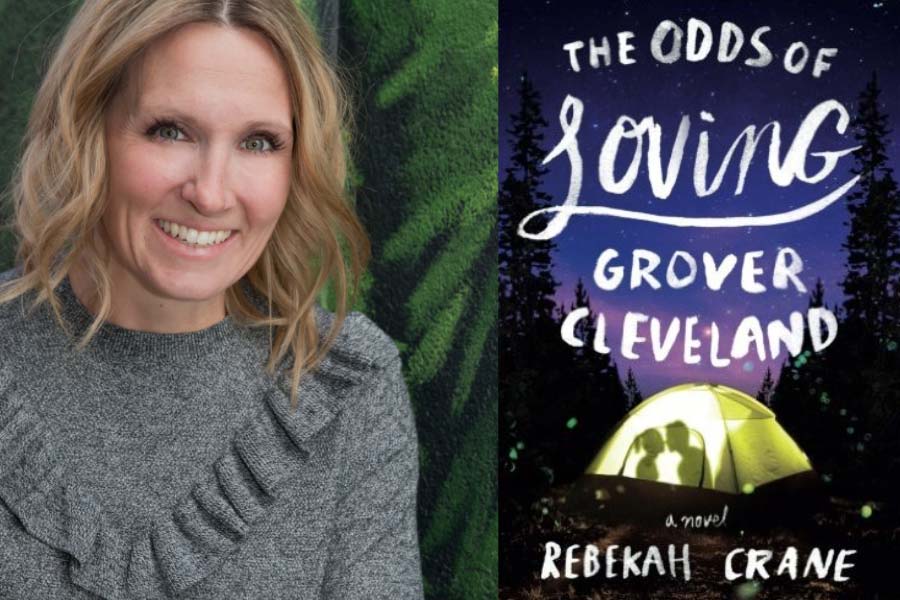
Interview with Rebekah Crane
1. When did you know you wanted to be a writer?
I didn’t discover my love for writing until I was thirty. I’m a late bloomer! Once I started, I couldn’t stop. I’ve been writing for six years now.
2. How did the idea for The Odds of Loving Grover Cleveland come to you? Any direct experience with that kind of summer camp (ie the kind for kids with ‘issues’)?
I went to a few summer camps, all much more pedestrian than Camp Padua, but I loved the idea of using a camp as a setting. Along with that, I wanted to write a fresh story with a different perspective. At the time, I was reading a non-fiction, short story book written by a psychoanalyst with individual stories about patients he treated. All I kept thinking was—no one is normal. Normal doesn’t exist. It’s a façade. And what if all these patients went to a summer camp together in their teen years? What would that look like? I threw the idea around with a few friends and the next thing I knew, I was writing a new book.
3. Do you have a place you always write? Do you write in public spaces (libraries, coffee shops, etc)?
I write in a few different places. Sometimes, I head to a coffee shop if I need to get out of my house and see people. I also have this comfy chair in my bedroom that’s perfect for writing. Any place where I can think and observe.
4. If you could invite one of your characters to dinner, who would it be? What would conversation be like at the table?
I’d invite Bek from The Odds of Loving Grover Cleveland. He’s a compulsive liar and a truly comical human being. It would go something like this:
Bek: So this is an Italian restaurant.
Me: Actually, it’s French.
Bek: I love meatballs and pasta. Do you think they have pizza on the menu?
Me: I said it’s French.
Bek: Did you know I speak fluent Italian?
Me: You do?
Bek: Totally.
Me: Show me.
Bek: Who are you and why are you sitting at my table in this lovely Chinese restaurant? Do you think they have fried rice on the menu?
5. What’s your process when you write? Do you plan everything out ahead, or just go with the flow?
I used to go with the flow, but that changed quickly. I like an outline. I may not always follow it, but it gives me ideas and parameters. At the very least, I think it’s essential to know the climax of a story before you start writing, then you know where you need to go.
6. What’s your favorite YA book?
The Perks of Being a Wallflower. I read it in college in 2001 and fell in love. It’s been my favorite ever since.
7. What’s your single best piece of advice for aspiring writers?
I have a few writing tips that I love to share with people:
1) Secrets should remain secret until the story demands they be told.
2) Don’t overwrite. Tell 70% of the story. Let the reader meet you for the other 30%. That way they stay invested.
3) Characterization is the external representation of a person (a football player, a cheerleader, the lead singer in a punk band). Character is their true internal self. The best characters have opposing characterizations to their true selves (the sinner masquerading as the saint).
8. If you were stranded on a desert island with just one of your characters, who would it be, and why?
Kim Choi from Aspen—If there was one character to get me off the desert island, it would be her. She’s smart and hilariously sarcastic, and a fiercely loyal friend. I know she’d never leave me behind when the plane came to save us.

